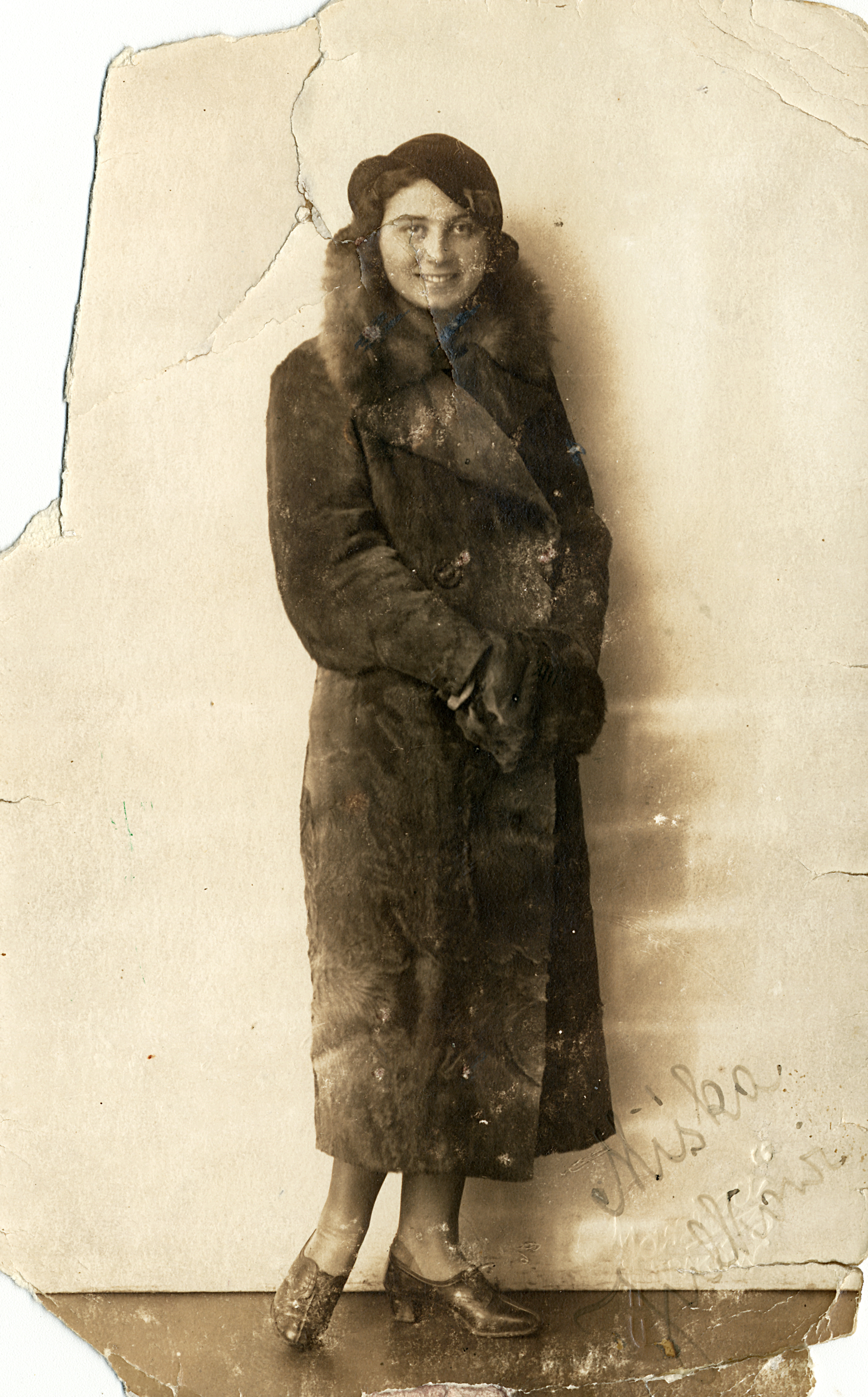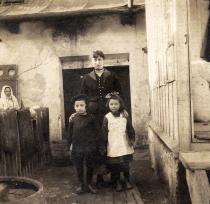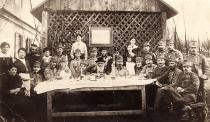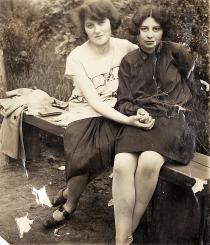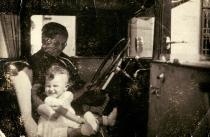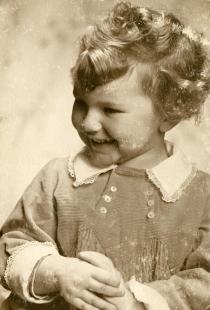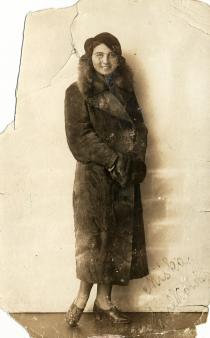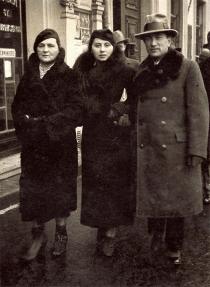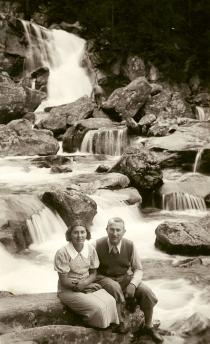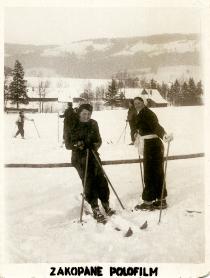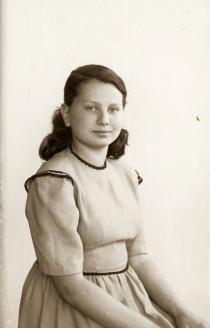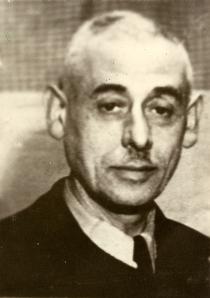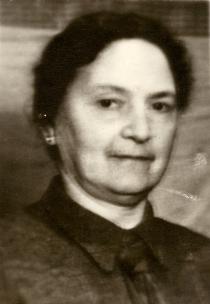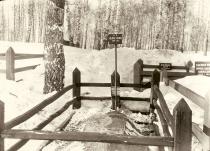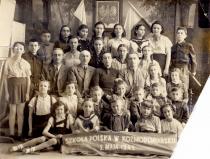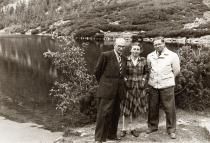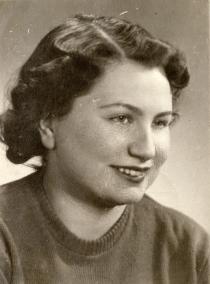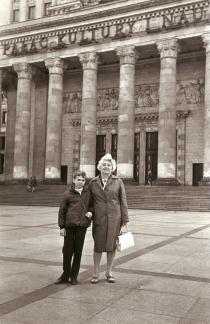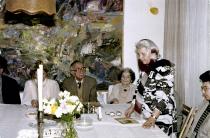This is me soon after Julek proposed to me. We were walking along Starowislna Street in Cracow, passing by some photographer’s studio, when he suddenly said: ‘I don’t even have your picture!’ We walked in, and the photographer took my picture. That was in December 1932. Later I wrote on the picture: Miska Julkowi [From Miska to Julek]. He used to carry it in his wallet. I remember the coat I’m wearing, it was a black cloth coat with a black fox collar.
Julek Leibel was friendly with my father. They had common business interests. He was his 'gesheft freund.' 'Geschaeft' [Yid.: gesheft] means 'business' in German. And he used to come to our apartment, to see Father. He was a lot older than me, and I was in love with him, I gazed at him like a dog at the moon. All I used to do was serve tea or something, as you do for guests. It didn't occur to me that he took any interest in me at all. I was a modest girl. What was I? A young girl without a penny, without a dowry, and he was rich, had a car. What that meant back then! Julek was an independent leather exporter, and my father was a modest Jew, bought the hides himself and then dispatched them. And I was completely surprised and amazed when one day my mother called me into the dining room, where a distant uncle was sitting, the father of my future husband, and Mother said that he'd come to ask whether I would marry Julek. And I was speechless. I said that of course I would. He liked me, and that was it. He even bought me a trousseau - he didn't buy it, he gave Father money, so that nobody would know, and Mother got me some linens together, what I had to have, so that I'd have a trousseau.
After he proposed to me, Julek was back and forth from Kalwaria Zebrzydowska [approx. 25 km from Cracow], where he lived with his parents, to me in Cracow all the time. It was winter. Along the Kalwaria-Cracow road there were woods nearly all the way, and attacks on travelers happened all the time. My mother-in-law was afraid that something would happen to him and refused to let him go to Cracow. She demanded a quick wedding: 'It's not like you met each other yesterday, you can get married, let her come to you here and that's the end of it.' My mother-in-law was called Anna, and my father-in-law Markus.
The wedding was 3 months after the marriage proposal. Actually, it wasn't a big wedding, just a quiet ceremony in my parents' apartment. The rabbi came, married us, and that was it. No reception, because there was no money. There were just a few people: my Aunt Ela, the one who'd really brought me up, came down from Warsaw, and the 2 cousins of mine that were in Cracow.
Before we moved to Kalwaria we went to Italy - that was a beautiful honeymoon. We traveled on trains, just the 2 of us. First we went to Vienna, because my husband had an uncle there. From Vienna we went to Venice, then to Rome, as everyone does, to Naples and to Capri. Karol, my husband's brother, traveled a lot, because he was a confirmed bachelor, and he drew us up an itinerary, where we had to go, what we had to see, and we followed his lead. We were going to go to Yugoslavia as well, but it was 1934 [Ed. note: Mrs. Leibel got married in 1933] and Hitler had started operating in Germany - he'd woken up, so we came back to Poland. The expulsion of the Jews and all those troubles had started... And then I went to Kalwaria… and as soon as I arrived, I broke my leg. There were these twisted stairs there, and I was running down the stairs fast...
